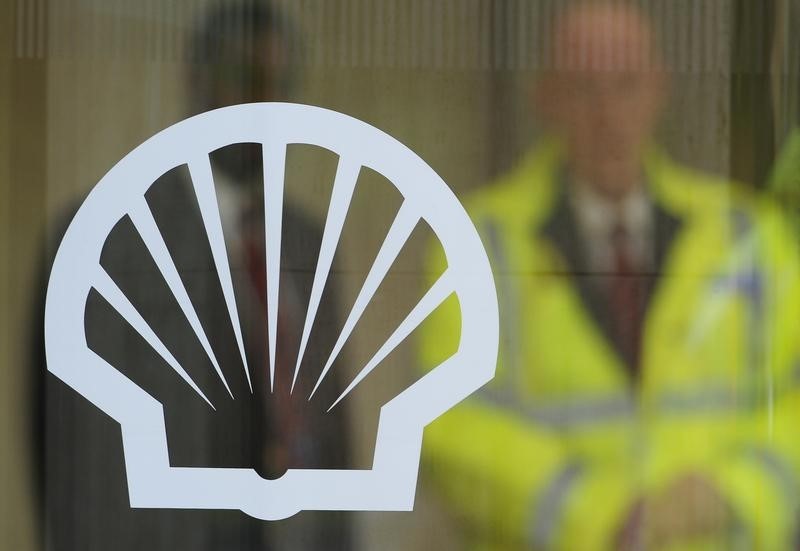By Geoffrey Smith
Investing.com -- Royal Dutch Shell (LON:RDSa) shares slumped in London and Amsterdam as the company cut its dividend for the first time since the Second World War, a stark illustration of the acute and long-term challenges facing the oil and gas sector.
The Anglo-Dutch giant was the biggest payer of dividends in the FTSE 100 last year, and pensio funds across Europe have relied on the steady income it has generated for decades. It’s the first of the global ‘supermajors’ to break what has previously been an inviolable taboo. After falling 8% at the open, it pared losses to be down only 5.0% by 5 AM ET (0900 GMT), adding to a chilling wave of economic data from Europe that pushed the benchmark Stoxx 600 down by 0.3%.
Like all companies whose revenue is subject to sometimes violent price swings, Shell had had cash squeezes before. It had resorted to paying much of its dividend in the form of new shares, or scrip, after the oil crash of late 2015 caught it wrong-footed, just after it had used up most of its available cash in the $76 billion purchase of rival BG Group.
But Thursday’s action is a whole different kettle of fish. In cutting the quarterly payout by two-thirds to 16 cents, the company is not just reacting to the acute, but likely temporary, collapse in demand, nor even positioning for a slow and uneven recovery in crude prices.
Chief executive Ben van Beurden took pains to call the move a “reset” of dividend policy – a new normal for the long term. In other words, it’s acknowledging the risk that it will never be able to generate the kind of shareholder returns in the future that it did in the past. Had it thought otherwise, it would surely have reverted to the tactic of using scrip dividends again.
In that regard, Covid-19 is more the catalyst rather than the underlying cause of today’s share price slump. The pandemic has, for example, sharpened the focus on the long-term future of aviation. The sustainability of the explosive growth in air travel was already under question before February. Production cuts at Boeing (NYSE:BA) and Airbus (PA:AIR) show very clearly which way that debate is going.
Similarly, the coverage given to improvements in air quality caused by lockdown measures have given environmentalists some potent statistical ammunition in their campaign for the electrification of mobility, a long-term threat to gasoline demand. That too can be expected to accelerate as Covid-19 passes.
That said, human memories are short, and pent-up demand for travel may well create a short-term bounce in fuel demand later in the year. Crude prices are already up smartly from their lows of earlier in the month. An optimist could also argue that Shell’s balance sheet conservatism will give it more space to snap up still-viable assets on the cheap later, when the crisis is past. Gearing, at under 29%, looks substantially better than BP’s 36% - the result of BP (NYSE:BP) defending its payout at the cost of higher borrowing.
But growth by acquisitions are theoretical and, in any case, far off in the future. The pain - a sharp drop in output and a 46% fall in underlying profit, with worse to come – is real and immediate. The company may yet surprise with its ability to squeeze value out of an asset base that the world economy will need for many years. But the days of gushing dividends are gone, quite possibly for ever.
